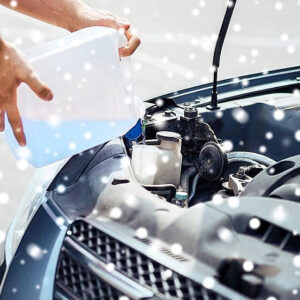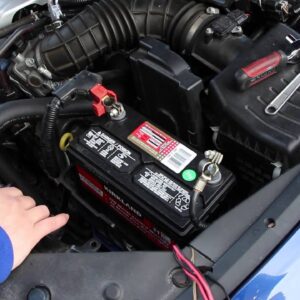Electric vehicles (EVs) and hybrids are powered by sophisticated battery packs that, over time, inevitably degrade. For many drivers, replacing that pack can feel daunting—both financially and technically. Yet, with advances in battery technology, a growing aftermarket, and extended warranties, it’s now possible to equip your hybrid or EV with a replacement battery that not only restores performance but can also last well beyond a decade. In this post, we’ll explore:
- Why battery replacement matters
- Key battery chemistries (NiMH vs. Li-ion)
- Top replacement options for hybrids and EVs
- How warranties and brands compare
- Cost, ROI, and long-term considerations
Let’s dive into what makes a replacement battery truly “long-lasting” and how to choose the right pack for your car.
Why Battery Replacement Matters
- Restored Range and Efficiency
As battery cells age, capacity dwindles—meaning shorter electric ranges on hybrids and EVs. A healthy replacement pack can regain up to 95% of original range, cutting fuel costs and emissions dramatically. - Resale Value Preservation
A fresh battery improves resale prospects. Luxury brands like Ferrari now offer replacement schemes in the 8th and 16th year to maintain performance—and value—of their hybrid models (Reuters). - Environmental Impact
Remanufactured packs reuse cells that still have life left, keeping them out of landfills and reducing demand for new raw materials (Greentec Auto). - Cost Savings Over Time
While EV battery replacements can cost $5,000–$20,000, prices are falling. Hybrids often have cheaper NiMH packs, and aftermarket warranties can offset unexpected failures (MarketWatch).
NiMH vs. Lithium-Ion Batteries: Which Lasts Longer?
| Feature | NiMH (Hybrid) | Li-ion (EV & PHEV) |
|---|---|---|
| Chemistry | Nickel-Metal Hydride | Lithium-Ion (various chemistries: NMC, LFP…) |
| Typical Lifespan | 8–10 years or 100k–150k mi (Wikipedia) | 10–20 years depending on cycles (GreenLancer) |
| Energy Density | ~60–80 Wh/kg | ~150–250 Wh/kg |
| Cycle Durability | Shallow cycling (40–80% SoC) prolongs life | 4,000–8,000 cycles (10–22 years at 1 cycle/day) (Reddit) |
| Cost | $1,000–$3,000 | $5,000–$20,000 |
| Environmental Footprint | Lower cobalt demand; recyclable | Higher energy density; evolving recycling |
- NiMH (Nickel-Metal Hydride) packs—common in Toyota hybrids like the Prius—use modules that are shallow-cycled to extend lifespan, often exceeding 200,000 mi (Wikipedia).
- Li-ion packs power most EVs and PHEVs today, offering higher energy densities and the potential for 10–20 years of use under typical driving patterns (GreenLancer).
Best Replacement Batteries for Hybrid Cars
1. Greentec Remanufactured Hybrid Packs
- Chemistry: Upgraded Gen 3 NiMH cells
- Warranty: 3 years / 50,000 mi
- Price: $1,200–$1,800 installed
- Highlights:
- Mobile installation service
- Savings of $1,500+ vs. OEM (Greentec Auto)
- Cells rated for 200,000+ mi
2. Dorman Hybrid Battery Modules
- Chemistry: NiMH OEM-equivalent
- Warranty: 2 years / unlimited miles
- Price: $1,500–$2,200
- Highlights:
- Direct fit for popular models (Prius, Camry Hybrid)
- Built-in BMS compatibility
3. Eco Auto “Battery 4 Life” Warranty
- Coverage: Lifetime EV & hybrid battery protection
- Max Reimbursement: $10,000 per failure (EV), $5,000 (hybrid) (myecoauto.com)
- Premium: $500–$1,000/year
- Highlights:
- Covers degradation below 60%
- Includes labor, diagnostics
4. A123 Hymotion PHEV Upgrade Kits
- Chemistry: A123Systems Li-iron Phosphate
- Warranty: 3 years
- Price: $3,000–$4,500 (kit only) (Wikipedia)
- Highlights:
- Converts Prius or Escape hybrid to PHEV
- Higher cycle life, improved thermal stability
Best Replacement Batteries for Electric Cars
1. OEM Refurbished Packs (Tesla, Nissan, Chevy)
- Chemistry: OEM Li-ion (Tesla 2170, Nissan Leaf pouch)
- Warranty: Varies; often pro-rata beyond original 8–10 years
- Price: $7,000–$15,000
- Highlights:
- Guaranteed original performance
- Cells reconditioned to ≥80% capacity
2. Third-Party Li-ion Modules (Crown, VoltSafe)
- Chemistry: LFP or NMC depending on model
- Warranty: 5 years / 60,000 mi
- Price: $5,000–$8,000
- Highlights:
- Cost-effective vs. OEM
- Plug-and-play harnesses
3. EV West Custom Battery Builds
- Chemistry: User-selected (Tesla packs, CATL cells)
- Warranty: 2 years / unlimited miles
- Price: $6,000–$12,000
- Highlights:
- Performance tunability
- Integrated BMS and cooling upgrades
4. Recurrent Auto Extended Warranties
- Coverage: Up to $20,000 battery replacement
- Price: $750–$1,200/year (Recurrent Auto)
- Highlights:
- Adds peace of mind for used-EV buyers
- Covers early failures beyond manufacturer warranty
Top Brands and Warranties for Replacement Batteries
Below is a comparative snapshot of leading replacement battery options for both hybrids and EVs:
| Brand / Provider | Vehicle Type | Chemistry | Warranty | Price Range | Notes |
|---|---|---|---|---|---|
| Greentec | Hybrid | Gen 3 NiMH | 3 yr / 50k mi | $1,200–$1,800 | Mobile install; Gen 3 cells (Greentec Auto) |
| Dorman | Hybrid | OEM-equivalent NiMH | 2 yr / unlimited | $1,500–$2,200 | Direct swap modules |
| Eco Auto (Battery 4 Life) | EV & Hybrid | Varies | Lifetime / unlimited miles | $500–$1,000/yr | Covers degradation below 60% (myecoauto.com) |
| A123 Hymotion | PHEV | Li-FePO₄ | 3 yr | $3,000–$4,500 | Prius/Escape PHEV kit (Wikipedia) |
| OEM Refurb (Tesla/Nissan) | EV | Li-ion | Original + pro-rata | $7,000–$15,000 | Reconditioned to ≥80% capacity |
| Crown / VoltSafe | EV | LFP / NMC | 5 yr / 60k mi | $5,000–$8,000 | Plug-and-play aftermarket modules |
| EV West | EV | User-selected Li-ion | 2 yr / unlimited | $6,000–$12,000 | Custom packs with enhanced thermal management |
How to Choose a Long-Lasting Replacement Battery
- Assess Your Usage
- Commute vs. Weekend Car: Frequent deep discharges demand higher cycle-rated chemistries (e.g., Li-FePO₄).
- Climate: Hotter climates accelerate degradation—look for robust thermal management.
- Review Warranty Terms
- Federal law mandates at least 8 years/100,000 mi; California ups this to 10 years/150,000 mi (EnergyRight).
- Extend via third-party plans for peace of mind.
- Compare Chemistry & Cycle Life
- NiMH excels in cost & simplicity; expect 8–10 years.
- Li-ion (NMC, NCA) offers energy density but moderate cycle life (4,000–8,000 cycles).
- Li-FePO₄ trades density for 10,000+ cycles, often exceeding 15 years (Reddit).
- Crunch the Numbers
- Calculate cost per mile: (Battery cost) ÷ (Expected lifespan in miles).
- Factor in fuel savings and potential EV-credits or rebates.
- Check Installation Support
- Mobile services (Greentec) vs. shop-only installs—consider convenience.
- Verify BMS & Connectivity
- A robust Battery Management System ensures cell balancing and safety.
- Some aftermarket packs integrate telematics for real-time health monitoring.
Battery Replacement Costs and ROI
- Hybrid Packs: $1,200–$3,000
- EV Packs: $5,000–$20,000
- Warranties/Plans: $500–$1,200 annually
Sample ROI Calculation (Hybrid)
- Cost: $1,500 for Greentec pack
- Saved fuel/month: $60 (vs. degraded pack)
- Payback period: ~2 years
Sample ROI Calculation (EV)
- Cost: $8,000 for Crown LFP pack
- Saved from degraded range & efficiency: $30/month
- Payback period: ~22 years—but consider improved performance and resale value.
Conclusion
Replacing the battery in your hybrid or electric vehicle doesn’t have to mean breaking the bank—or sacrificing longevity. Whether you opt for a remanufactured NiMH pack that carries you reliably for another decade, or a cutting-edge Li-FePO₄ kit rated for over 15 years of cycles, today’s options deliver unbeatable value. Consider your driving habits, regional climate, and budget to choose the chemistry and warranty that align with your goals. With the right pack, you’ll drive confidently knowing your car’s power source will last well beyond the next 10 years—keeping you on the road, and out of the parts bin.
Ready to upgrade?
- Hybrid drivers: Check out Greentec’s remanufactured packs for mobile installation and a 3-year warranty (Greentec Auto).
- EV drivers: Explore Crown’s LFP modules for cost-effective, plug-and-play performance.
- Worry-free coverage: Consider Eco Auto’s Battery 4 Life plan for lifetime protection against unexpected failures (myecoauto.com).
Your car’s next decade of driving starts with the right battery choice—choose wisely, drive sustainably.






